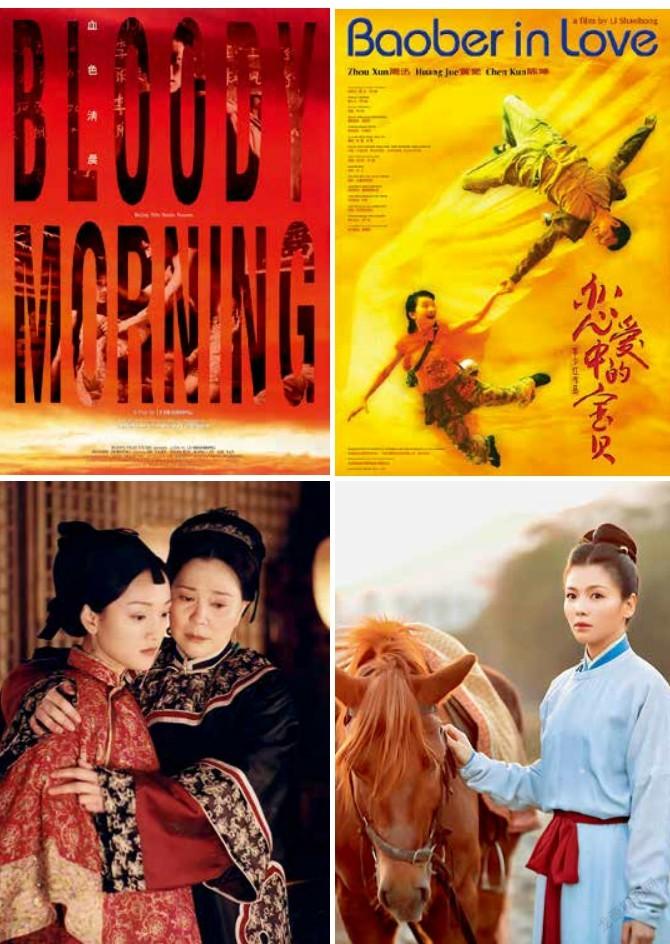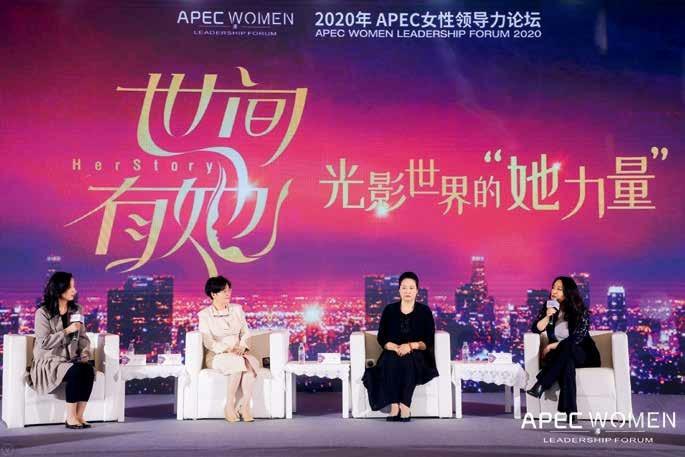Li Shaohong:Doing It Her Way
2022-06-28byNancyGong
by Nancy Gong
Li Shaohong is an irreplace- able name for Chinese female filmmakers. Li stood out from her peers and earned huge fame among the star-studded fifth-generation Chinese film directors because of her unique style. Known for“ferocity” in her early works, Lis female perspective in film transitioned from “unconscious” to“conscious” due to an awakening of female consciousness. Her personal experience reflects the changing situation of Chinese female filmmakers.
In 1978, Li was admitted to the Department of Directing of Beijing Film Academy. In a class of 28 students, Li studied with male classmates such as Chen Kaige, Zhang Yimou, and Tian Zhuangzhuang, and female classmates including Hu Mei and Peng Xiaolian, all being big names in Chinas film and television industries today. Since the 1990s, the class has made its mark in the filmmaking industry and brought Chinese films into global spotlight, winning many domestic and international film awards.
“Ferocity” is a signature of Lis early works. Her directing debut was the thriller The Case of the Silver Snake (1988), an assignment from Beijing Film Studio. Combining bloody violence, voyeurism, and murder, the film was a commercial success. It was the studios most profitable film that year. However, it soon faced criticism. Chinas most widely circulated film magazine at that time, Popular Cinema, cited 18 scenes of violence in the thriller and many viewers were shocked that “a female director could produce such a film.”
In 1995, Li directed the drama film Blush, adapted from a novel of the same name by famous contemporary Chinese writer Su Tong. The story follows former prostitutes starting a new life in the years following the founding of the Peoples Republic of China in 1949. It captures both the big picture of Chinese society and the individual fate of Chinese women at that time. The act of adapting the novel helped Li gradually realize the differences between the female perspective and the general public perspective. After multiple revisions, Li eventually determined that the different choices of the two female protagonists amid drastic social reforms led to the true story she wanted to tell. The movie won the Silver Bear at the 45th Berlin International Film Festival, making Li the first Chinese female director to receive this award.
Li attended the Fourth World Conference on Women in China in 1995. Discussions at the conference showed Li that womens self-consciousness was a worldwide issue, and it dawned on her that “the greatest strength in her art creation is the female perspective and female expression.” Many times since, she has reiterated that “it was in the process of producing Blush that my female perspective went from unconscious to conscious.”26CEC5BF-083F-4A49-A90C-5411B8404319
The movie was also the first from the Chinese mainland to adopt a model of revenue sharing according to international standards. The Chinese film industry launched institutional reform in 1993, which caused Chinese filmmakers to raise funds themselves. Li decided to instead shift to TV production.
The TV series Palace of Desire filmed in 1998 is considered Lis most female-conscious work. In the production, Li reinterpreted two legendary Chinese women from a female perspective: Wu Zetian (624-705), the only female emperor in feudal China, and her beloved youngest daughter, Princess Taiping(665-713). Wu Zetian is known for comparable or even greater political ambitions and ruling savvy than male monarchs, and Princess Taiping showed modern feminist characteristics by bravely fighting imperial power for love and freedom. The TV drama offered a unique perspective which had never been seen in previous productions about Wu Zetian and Princess Taiping. It became a huge success and set a television viewing record after 17 episodes were broadcast on China Central Television. It remains a classic today.
In the 21st century, Li has continued to produce excellent works including the TV series The Orange Is Red (2002), movie Baober in Love (2004), stand-alone monologue The Legend of Yunchong (2020) from the miniseries Hear Her, TV series Palace of Devotion(2021), and movie Her Story(2022). Through varied works, Li has never stopped pursuing art with a unique female perspective and humanistic concern. “I want to be more courageous and bring a greater female perspective to storytelling,” Li said with hope. “I think female-centric stories and female filmmakers together would be an unstoppable combination.”
With a career going strong for nearly 40 years as a director, Li is frequently asked how she has managed so much “persistence”in filmmaking. “Its a tricky question,” she said. “I dont actually feel like I was persistent because I always did things my own way.”26CEC5BF-083F-4A49-A90C-5411B8404319
